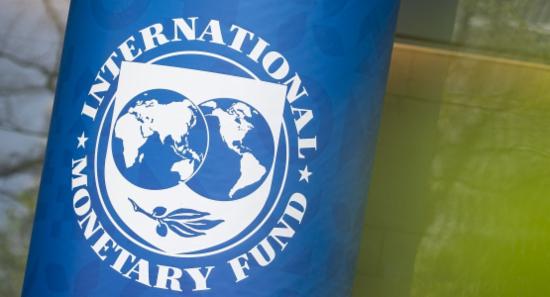.webp)

We are not letting loose just for political expediency: Harsha de Silva
Amid political uncertainty triggered by the outcome of the local government polls, the new state minister of National Policies and Economic Affairs Dr. Harsha de Silva assured a youth symposium on economic policy that macroeconomic stability will be maintained to help the debt-burdened economy get back on track.
“We have some serious challenges on the macroeconomic front but the government is very responsible, we are not going to let loose just for political expediency,” de Silva told the ‘New Thinkers Symposium on National Economic Policy Outlook’ organized by the Institute of Policy Studies.
“The government is not planning on abandoning what we have started, however, we may not be able to maintain the same speed of the things which have already begun,” he said.
State minister Harsha de Silva’s assurances came in the backdrop of concerns raised by economists that political instability and confusion may negatively impact economic growth.
Central Bank Governor Dr. Indrajit Coomaraswamy was one of the first to flag the looming risks of continued political instability on investments and the recovery programme of the economy.
“Sri Lanka needs political stability as quickly as possible … politics could affect sentiments which lead to a reduction in investment and growth… if the political situation leads to a loosening of fiscal policy, the Central Bank would have to lean against that and tighten monetary policy,” Dr. Coomaraswamy told reporters at the last economic review in Colombo.
Analysts say election results reflect the disenchantment of the masses with the coalition government they voted in on January 08
th
2015. The failure to deliver on key election promises of good governance, reduce cost or living and efficient fertilizer supplies to farmers can be attributed to the drubbing at the polls.
The outcome of the election has completely derailed the government and the intense power struggle within the coalition is evident in the delay in which new cabinet ministers were appointed in a mini cabinet reshuffle.
The second round of cabinet changes of UPFA ministers is expected within the next two weeks with the president also expected to announce changes in state institutions and corporations.
In the wake of prolonged uncertainty and lack of clarity, the Ceylon Chamber of Commerce also flagged concerns of the possibility of investors moving away from Sri Lanka and economic reforms taking a back seat.
“With this uncertainty, you might lose some of the investors who are now ready to come in. Approvals which are in the Board of Investment (BOI) pipeline will come into effect in 2018. If you lose them that will be the biggest loss under uncertainty,” Shiran Fernando, the Chief Economist of the Ceylon Chamber of Commerce said.
Fernando said with only a two-year term left, the window for wholesale reforms is narrowing and that the government should focus on delivering provisions in the budget for 2018.
“Things like a pricing formula for fuel and electricity will be too difficult. IMF has put a target of March and September for cabinet approval for that to take place,”
“I think it will be difficult to get that across in this phase. But policy priority in terms of maintaining at least macro stability will go a long way,” he said.
Economists say going by numbers, Sri Lanka’s economy was moving towards a stable state with tax revenues and investment outlook improving. Fernando also said higher levels of foreign direct Investment (FDI) and an uptick in exports were positive signs.
“They will take a watch and wait for the approach but we must not lose that window of opportunity that is there,” Fernando commenting on potential investors said.
Sri Lanka’s economy grew 3.3% in Q3 of 2017, a decline from the growth of 4% in Q2 of 2017. It is expected that Sri Lanka’s 2017 economic growth may fall below 4.5-pct from a projected 5.5% to 6.0%.
The Central Bank expects 5% to 5.5% economic growth this year but political uncertainty following the shock defeat suffered by the ruling coalition government may slow momentum and dampen hopes of further recovery.
Other Articles
Featured News





.png )

-797563_550x300.jpg)
-797273_550x300.jpg)

























.gif)